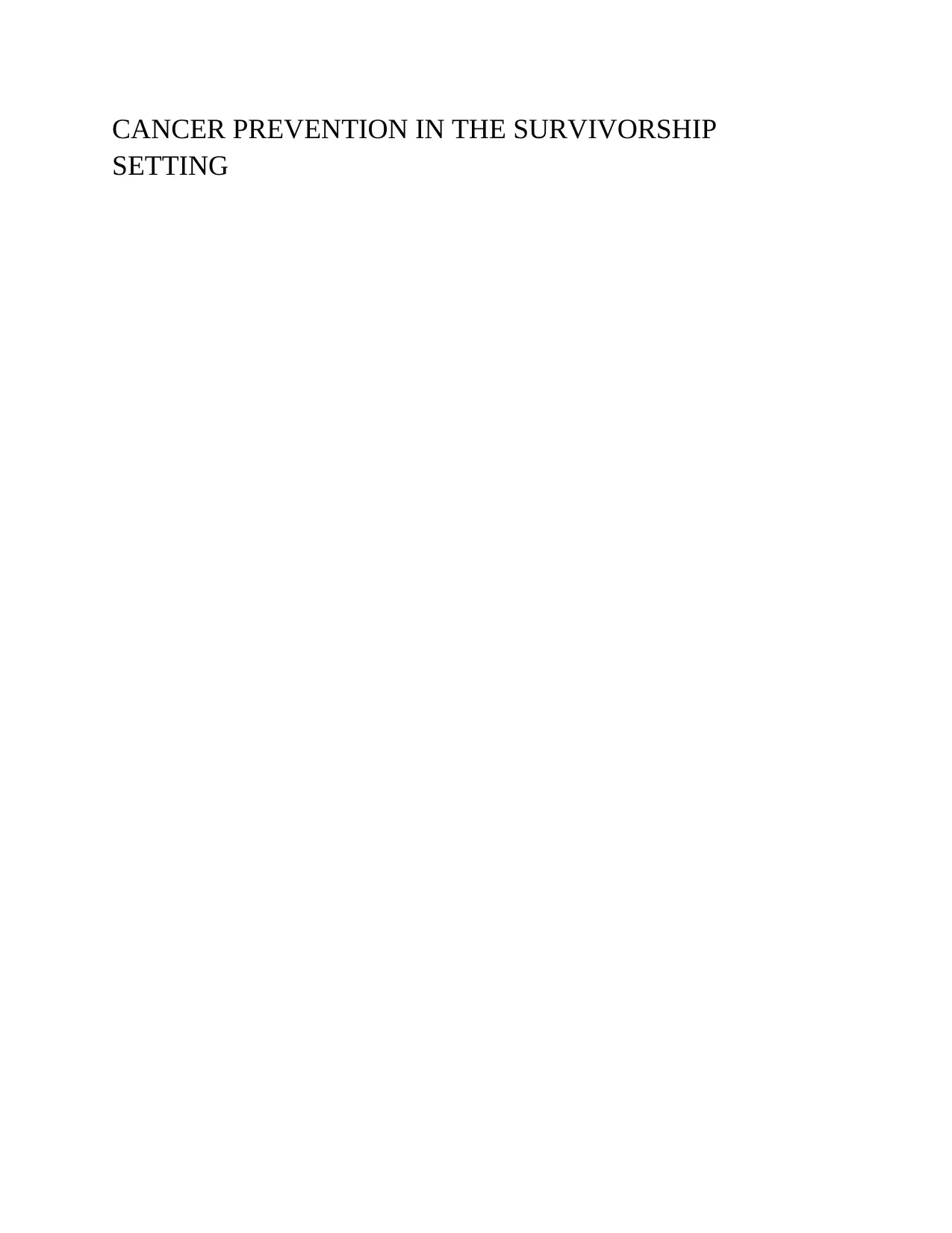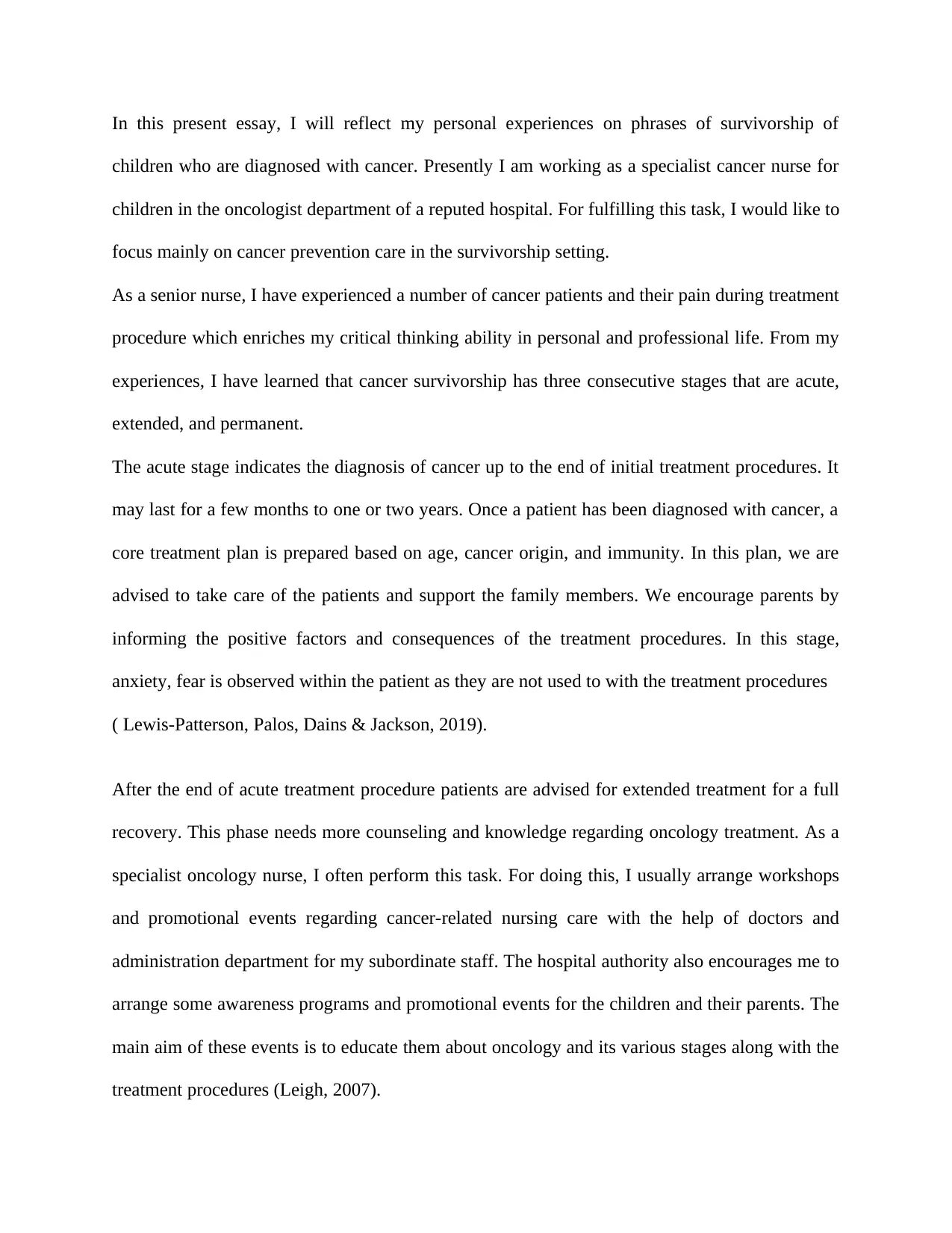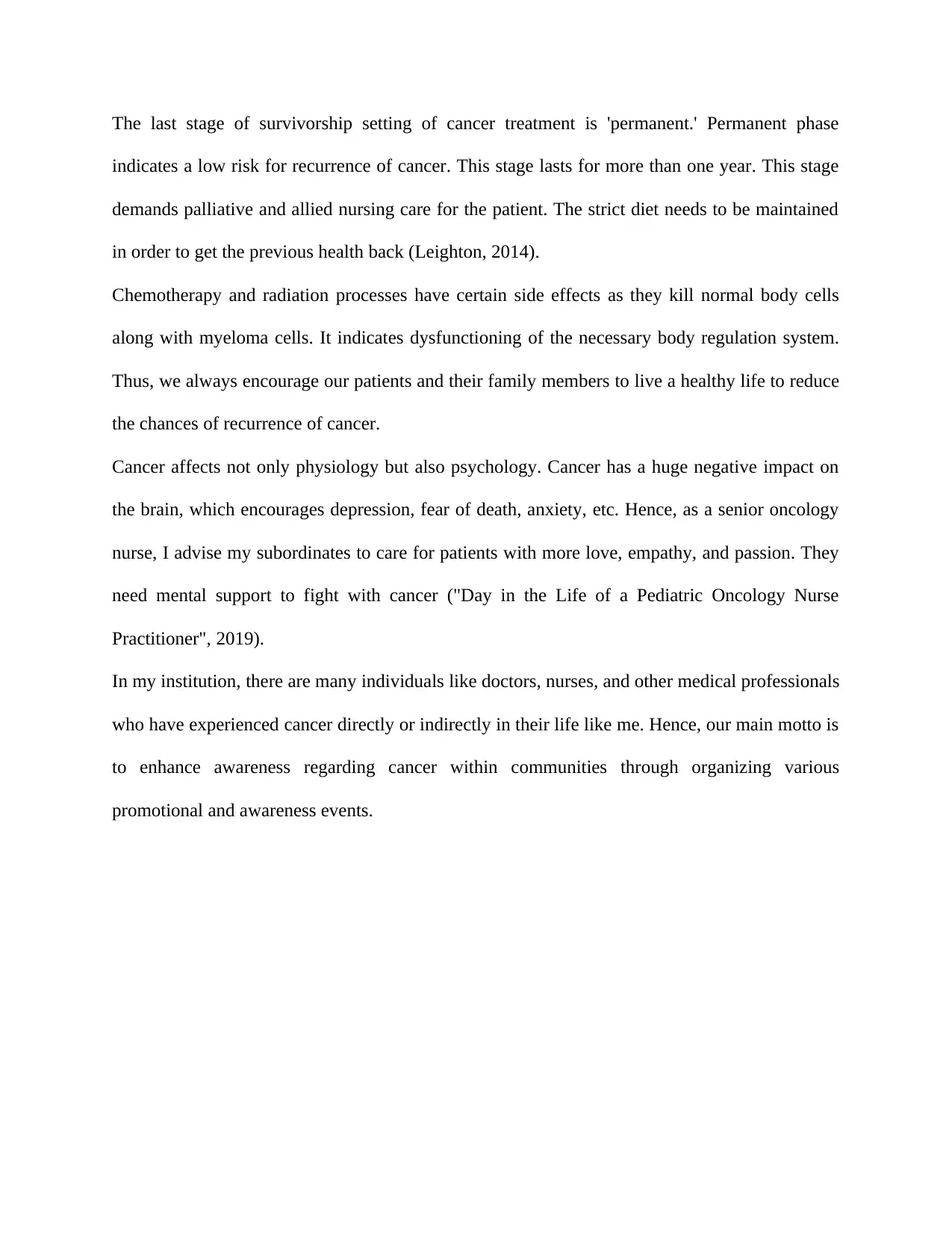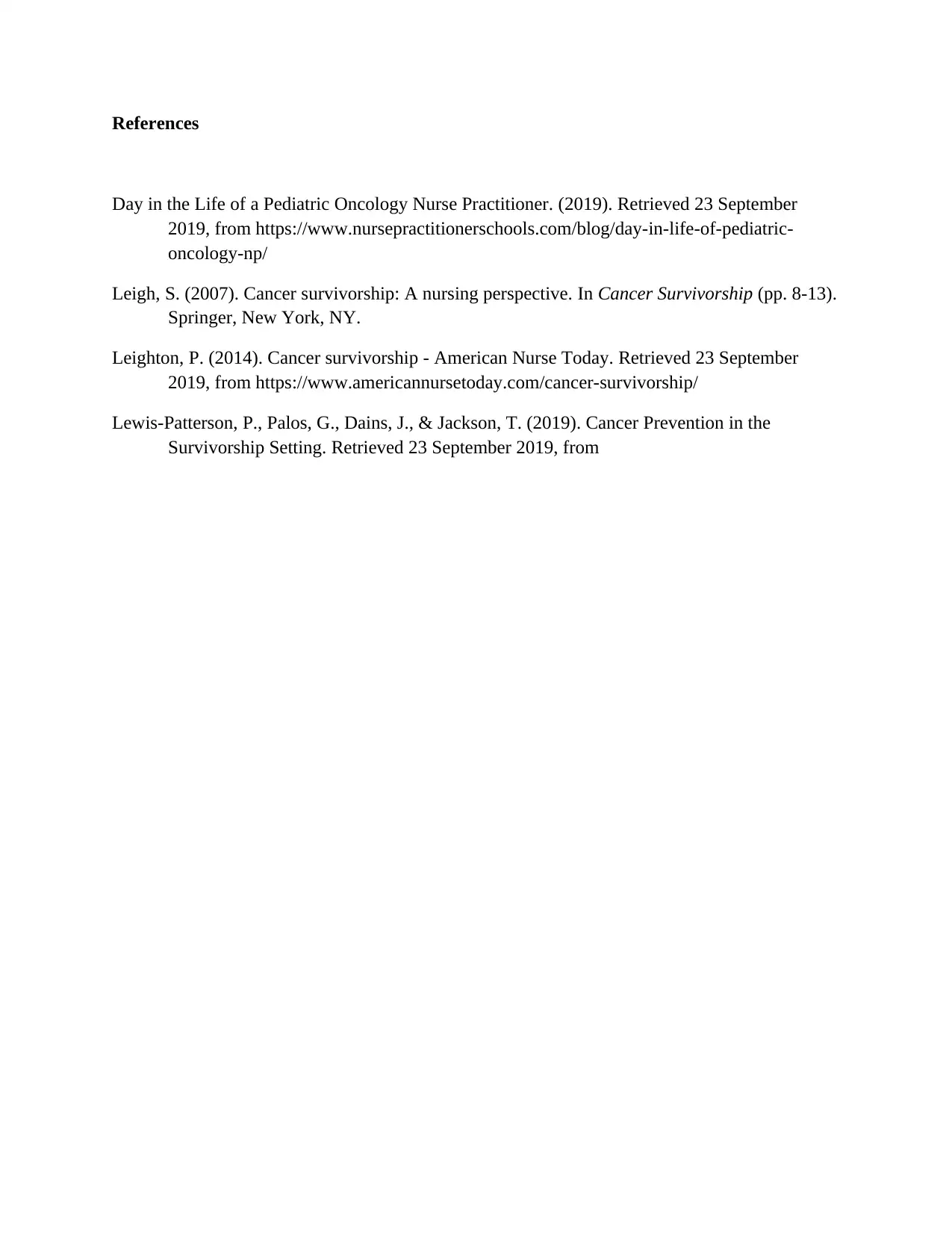Cancer Prevention and Survivorship: A Nursing Perspective
VerifiedAdded on 2022/10/17
|4
|726
|9
Essay
AI Summary
This essay provides a reflective analysis of cancer survivorship from the perspective of a specialist cancer nurse. The author, drawing upon personal experiences in an oncology department, explores the three stages of survivorship: acute, extended, and permanent. The essay emphasizes the importance of cancer prevention, health promotion, and patient education throughout the survivorship journey. It discusses the role of nurses in providing care, counseling, and organizing awareness programs for patients and their families. The author highlights the psychological impact of cancer and the need for nurses to offer empathy and mental support. References to relevant literature support the discussion of cancer treatment, late effects, and the overall impact of cancer on individuals and their families. The essay advocates for a holistic approach to cancer care, emphasizing the nurse's vital role in improving long-term outcomes for cancer survivors.
1 out of 4






![[object Object]](/_next/static/media/star-bottom.7253800d.svg)